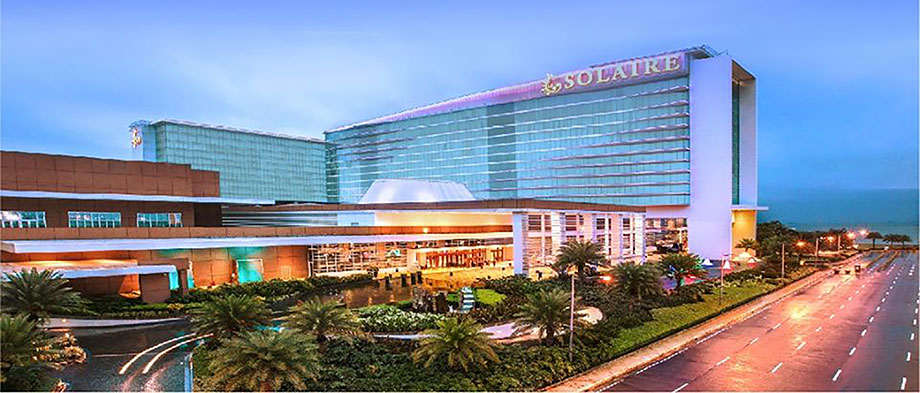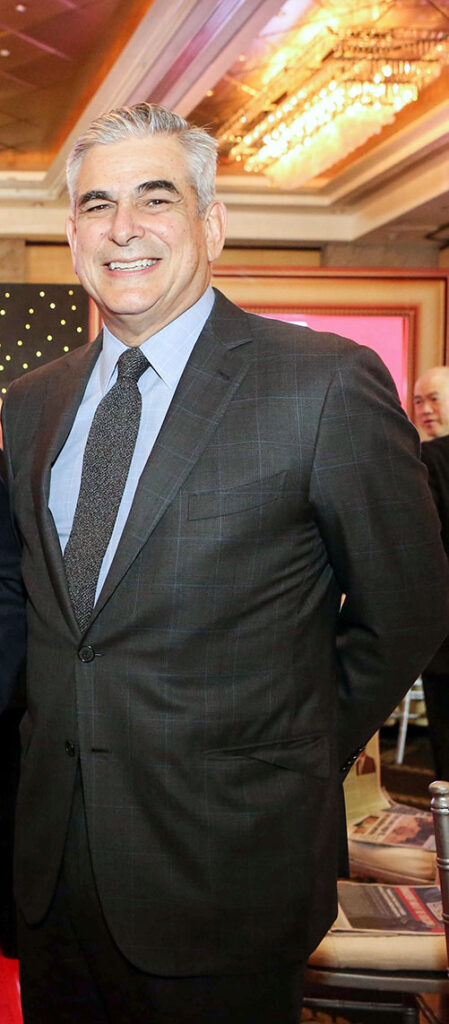By Iris Gonzales
The country’s tycoons are cracking their brains on how to navigate the “new normal” brought about by the COVID-19 pandemic. Some micro-enterprises have shut down while medium-sized businesses have been laying off workers. But what exactly does tomorrow bring for the business community here in the Philippines?
It’s going to be more difficult than anyone has imagined. Indeed, many businesses expect the environment to be really different, thus spurring the need to rethink ways of doing things.

/Photo from the Solaire Facebook Page
Ports and casino tycoon Enrique Razon, whose sprawling Solaire Resorts & Casino has been closed to guests during the lockdown, said he has already written off 2020 because of the virus. What is important, for now, is to help the government contain the pandemic and for businesses to ensure that members of their workforce are safe.
“We can count the losses later on,” Razon said in a recent interview with Bloomberg.
What is clear for all is that there is a need to work within the new normal. Many businesses are now preparing for this.
Ayala Corp., the country’s oldest conglomerate, for one, is already preparing a phased-in transition to a post-quarantine “new normal.”
During the company’s virtual annual stockholders meeting last April, Ayala Corp. chairman Jaime Augusto Zobel de Ayala said that the conglomerate is shifting to a proactive and solutions-oriented approach and transitioning to a new business environment amid the COVID-19 pandemic.
Unfortunately, Zobel said that this is fairly new territory, even for business giants like the Ayalas. “There is no existing playbook for this kind of situation,” he said.
Reset, restart, recover

For starters, the conglomerate has reset its planning cycle into three short-term phases to address the current situation. This would enable it to move forward in a post-COVID environment.
Phase one of the transition will involve preparing for the re-entry of the workforce, and to make sure they are well prepared and safe to go back to work.
Phase two will involve ensuring business resiliency.
“Within two months after the lockdown is lifted, we will closely monitor consumer behavior, market, industry and regulatory shifts, supply chain situations, and how the overall economy will restart,” Zobel said.
He noted, for instance, that there has been a significant increase in the usage of digital channels during the quarantine, particularly the BPI online platform and GCash.
The third phase will involve transforming the business to adjust to the new normal in the third and fourth quarters.
“After we have gathered enough knowledge of the new economic situation, the final phase of our approach will involve going back to the drawing board to develop our group’s longer-term business plan. During this period, we have to be able to provide answers to questions on how to adjust to a ‘new normal’ for our employees, customers and overall operations and financial sustainability given shifts that would take place from this crisis,” Zobel said.
The conglomerate is also on the lookout for new businesses and new ways of doing things as it embraces a post-COVID-19 world.
Ayala is looking into expanding its other businesses such as healthcare, logistics and fintech (financial technology), said Ayala Corp. chief finance officer Jose “TG” Limcaoco.
It will review other areas such as automotive and manufacturing to see how it can enhance the value of these spaces.
The conglomerate is also looking to invest more in its digital initiatives.
For their part, tycoon Manuel V. Pangilinan said his group would strengthen its telecommunications capacity, beef up its logistics businesses and invest more in hospital space.
Low touch economy
Businesses should also be ready to embrace a low touch economy. It will be hi-tech, but it will be characterized by low-touch behavior. Work-from-home setups may stay for good.
They should be ready and willing to accept that people’s lifestyles will change drastically even if a vaccine is developed and made available to everyone.
Consumers will now be more guarded with their actions and lifestyle, fully aware and in consideration that someday in the future, another pandemic may break again.
Those in consumer businesses should accept the fact that COVID-19 will change how people will eat, socialize, and spend their free time and money.
The e-commerce business will boom because take home and deliveries will remain a viable option for many people in procuring their essentials. E-banking and fintech will grow exponentially. Businesses should therefore invest more in these areas.
Hospitals will now be a good investment.
Welcome to the new normal
Michael Ricafort, chief economist at the Yuchengco Group’s Rizal Commercial Banking Corp. said that it’s going to be a difficult business environment, at least for the rest of the year.
The economy is seen slowing down to low single digit levels or even negative this year, as a result of reduced business and economic activities during the enhanced community quarantine period.
He said that in many parts of the world, many businesses have been shutting down just to prevent the virus from spreading, and eventually causing bigger harm and losses to the economy.
“Most countries in Southeast Asia, Asia and the rest of the world have been reducing economic growth estimates for 2020 as they prepare both monetary policy and fiscal policy interventions. Expect a sharp reduction of key interest rates, massive infusion of liquidity into respective economies through quantitative easing, and unprecedented huge amounts of fiscal stimulus measures that will lead to bigger budget deficits as part of countermeasures to deal with the economic fallout, brought about by coronavirus-related risks. Such risks led some economies to a near stand still, as many people around the world have been encouraged by authorities to stay at home,” Ricafort said.
He said that for many businesses, the shutdown could lead to permanent closures, together with accompanying job losses.
Hopefully, he salso noted that business activities would pick up again in a scenario where there would be some bearable job losses and manageable business closures in the economy.
Thus, all businesses should learn to navigate through the new normal brought about by COVID-19. Those with financial muscle can be opportunistic and invest more in businesses that thrive under this whole new landscape.
What is important is for businesses to remain resilient despite the difficult economic tide. Those who can roll with the punches will most likely survive.





